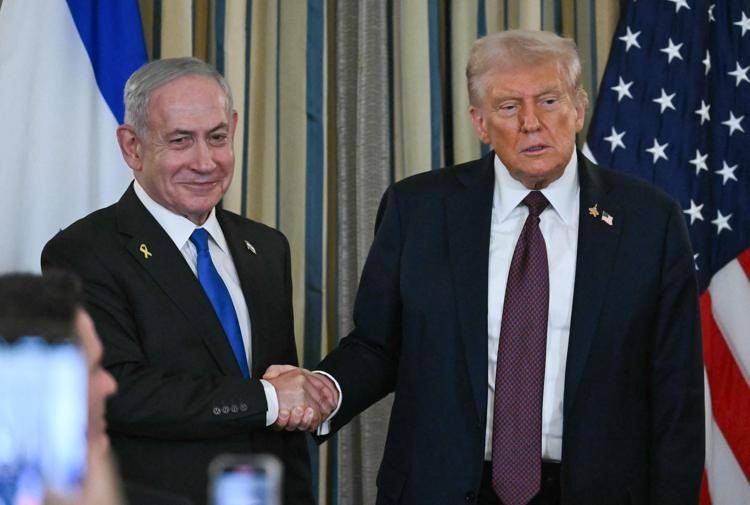
The evolution of Hayat Tahrir al-Sham (Hts) in Syria
-


Alberto Trentini e Mario Burlò sono in Italia dopo la liberazione VIDEO
-


Overnight explosions in Caracas hit military area, widespread power outages reported VIDEO
-


Attacco Usa in Nigeria contro l’Isis, Trump: “Risposta al massacro di cristiani” VIDEO
-


Frana a Cormons: disperso un giovane e un’anziana sotto le macerie VIDEO
From taxes to military strategy via education: a detailed analysis of the Hts government in Idlib and the possible implications for a post-Assad Syria
Hayat Tahrir al-Sham (Hts), an initially jihadist group, has ruled Idlib with pragmatism and discipline. Studying their governance model, clues emerge about a possible export of their approach to a post-Assad Syria. This article explores in detail the economic, military and social strategies adopted by Hts.
Taxes and Economic Strategy
According to Mark Nakhla of Kharon, Hts represents an example of economic adaptability during conflict. The group has evolved its economic strategy from foreign donor support to a model based on taxes and other forms of government revenue. Taxes on goods and businesses, together with customs duties, provided the main sources of revenue.
Controlling Idlib: Taxes and Governance
Hts imposed taxes on agricultural products and goods in transit, and operated monopolies on essential services such as fuel and electricity. The ‘Syrian salvation government’ established by Hts has demonstrated a degree of administrative stability and capacity to manage public finances, similar to that of a conventional government.
The Impact on the Population: Services and Education
Despite criticism for authoritarian methods, Hts established a civil authority consisting of 11 ministries and introduced some moderate Islamic practices. Free Koranic schools, along with subjects such as mathematics and English, were an example of the group’s educational approach.
Military Strategy and Security
Hts maintained an internal security force to deal with other armed factions and internal criticism. The group has also abandoned extremist methods such as suicide bombings, showing a transition to a structure more similar to that of a conventional army. Experts estimate that Hts fighters number between 10,000 and 60,000.
The Abandonment of the Global Jihad
Ahmed Hussein al-Shara, known as Abu Mohammed al-Jawlani, focused the ideology of Hts on the battle against the Assad regime, abandoning global jihad. The creation of a ‘Military School’ in 2021, with ex-Assad officers to train fighters, marked an important step in the group’s transformation.
Weapons and External Support
Hts weapons were largely taken from Assad’s forces or purchased from corrupt regime officials. Turkey provided additional resources, including vehicles and small arms. In addition, Hts has shown ingenuity in the manufacture of drones and rudimentary armoured vehicles.
Hts will have to consolidate control over several rebel forces, demonstrate political inclusiveness and allay concerns of possible post-Assad absolute rule. The future of their national governance model remains uncertain, but developments in Idlib offer an interesting picture of the potential dynamics in a post-conflict Syria.
THE LATEST NEWS
(Photo: © AndKronos)
-

 News19 ore ago
News19 ore agoOpen day carta d’identità elettronica a Roma il 17 e 18 gennaio
-

 Flash19 ore ago
Flash19 ore agoRaccoglie ordigno prima guerra mondiale: morto un uomo a Valdobbiadene
-

 Sport18 ore ago
Sport18 ore agoAustralian Open 2026: Jannik Sinner debutta contro Hugo Gaston
-

 Flash15 ore ago
Flash15 ore agoIncendio ospedale Sacco Milano al padiglione 16: evacuati i pazienti











